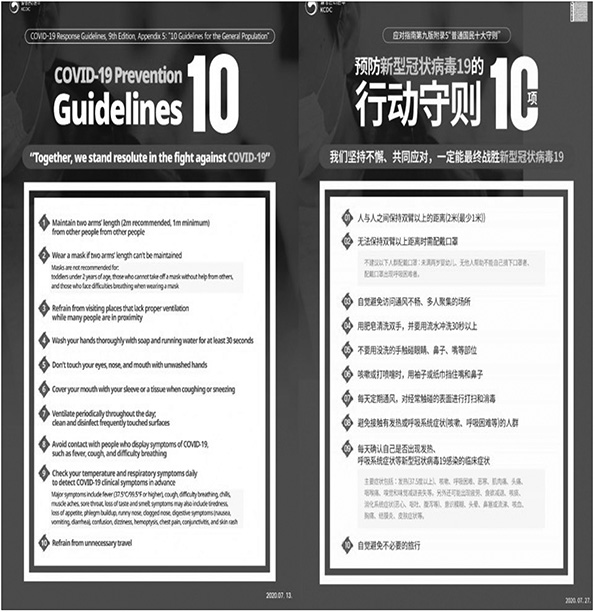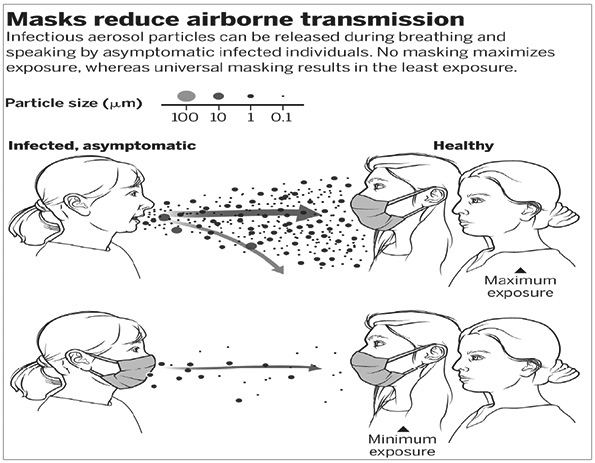
As the risk of the spread of COVID-19 has not been eliminated, CBNU has decided on the principle of non-face-to-face(NFTF) classes for the second semester of 2020. There is a difference in that the entire teaching method was decided and announced in advance; in March and April, the first semester, the method was announced after identifying the extent of the spread of COVID-19.
According to the Department of Academic Administration Support, non-face-to-face class will be the basis in the second semester; exceptional face-to-face classes will be admitted only for experiment classes, arts and craft classes etc. Also there is a chance that upon request of the professor, the class operational measures could be changed to overall face-to-face depending on the feature of the subject in both theory and laboratory classes. The updated syllabi have contained the measures so that students could refer to it. Meanwhile, the foreign students who have difficulty entering the country are induced to take the NFTF classes; and if FTF classes are inevitable, cooperation was requested to replace classes with assignments only for the foreign students.
NFTF classes would be conducted via real time remote lectures such as Zoom or non real time remote lecture such as eCampus. Since they have been problematic in the last semester, assignment replacement and online community lectures are not available. In exceptional FTF classes, preventive actions against COVID-19 must be done before, after and also during classes.
Thanks to NFTF classes, students could lessen their concerns of group infection of COVID-19 that could have been caused by attending FTF classes. However the problems of NFTF classes keep being pointed out. First is that the quality of the lecture decreases compared with the FTF classes. According to a thesis of Korea HCI Association, the effect and participation of online learning is still insufficient because of the Drop-out phenomenon although the advantages are drawing attention. It is a result of Multitasking during class which is unrelated to learning, caused by NON-face-to-face online classes. There is a survey of student complaints related to NFTF classes conducted by The Student Council; assignment replacement more than 3 weeks, canceling and making up classes and stealing lectures of other professors (or universities) are the top complaints. Some students point out that especially when the class is substituted with doing assignments, students should understand the contents by themselves and then do the work, which is demanding and leads to low quality outcome. “Since it was the very first experience related to the corona virus, we admitted the assignment replacement classes for the first 2 weeks for the professors to prepare the online lectures and for the students to strengthen basic learning themselves. But it seem that some classes have replaced the full semester into doing assignments,” the Department of Academic Administration Support said. “To solve this problem, we banned the worrisome method of the classes.”
Some presentation classes have been progressed using real time remote systems but it is true that they still lack the quality. Especially with group project which requires face-to-face meetings, the problem starts with collecting datas for the presentation. It results in lots of complaints that doing group project in NFTF classes is a big headache. Also the goal of the presentation class is that professors can ascertain the students’ capacity well; which is shown in feedback or evaluation between students. But it is difficult to satisfy the expected effects with non-face-to-face presentation because of two reasons; the presenter feels as if there is no audience and there are less students focusing on the presentation.
Second problem is a lack of opportunities to meet fellow students and professors. To prevent the spread of COVID-19, CBNU cancelled all events last semester such as orientation for freshmen, the entrance ceremony, a sports day etc. Neither could students have club meetings and activities. This situation is depriving the freshmen of 2020 from having mates to study and socialize with, or seniors to give them guidance and information. According to the Department of Student Affairs, there are no confirmed events planned for the second semester this year yet either. Kim Jung-hyun, freshman in nursing, said, “A second-year senior contacted me first so I could get lots of help from him, but since we haven’t met each other yet, it is hard to be friendly with him. In experiment classes, in particular, I had a hard time understanding the contents and it took lots of time and effort to complete the assignments.”
A lack of meetings between students and professors is also a problem. There were lots of students who have had online meeting with their professors only for a short time or have not even talked to their professors, although there are academic advisor and a lifelong counseling system. Therefore freshmen have little options to get detailed information about their majors unless they have personal acquaintance with the professor.
“It is true that the risk of the group infection gets higher in face-to-face classes. But if the members adhere well to the preventive actions, not only in the class but in their lives, I think there would be no big problem to have classes face-to-face,” said Kim Kyung-mi, a professor of nursing at CBNU.
Therefore, exceptional FTF classes had better carry out the quarantine guidance well and alternatives are needed to address the problems pointed out. Also it is necessary to explore whether the changed regulation about class operational measures improve the quality of the class.
By Park Ji-min
jm41@cbnu.ac.kr


 All
All Campus News
Campus News






 Park Ji-min
Park Ji-min











